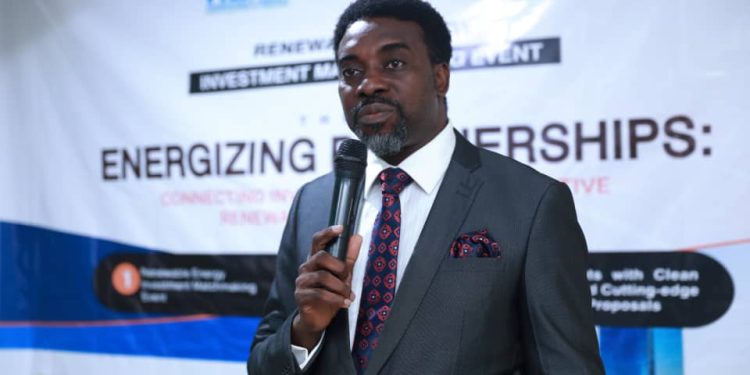A minimum of $80 million is available through prospective investors for members of the Renewable Energy Association of Nigeria (REAN) to execute various energy projects in the country, the President of the association, Ayo Ademilua, has said.
Ademilua disclosed this during the Renewable Energy Investment Match-making event on Wednesday in Lagos.
The theme of the Renewable Energy Investment Matchmaking event was: “Energising Partnerships: Connecting Investors To Transformative Renewable Energy Projects”.
The event was sponsored by AllOn in partnership with REAN as an investment matchmaking event.
Ademilua said REAN members have promising projects that could effectively address the energy challenges in Nigeria using the abundant renewable energy resources available in the country.
He said however that these developers required funding to bring these projects on board.
To bridge the gap, he said the event was organized to serve as a hub for connecting developers with multiple investors who were interested in investing in the clean energy sector.
In addition to investor involvement, Ademilua highlighted the support received from various commercial banks such as First Bank, Sterling Bank, and Stanbic Bank to promote the development of the renewable energy sector.
Others, he noted, were multilateral investors and stakeholders who have shown keen interest in investing in the renewable energy sector.
“So, on the aggregate, we have been able to pool about $80 to $100 million that is available for renewable energy projects in Nigeria to members of REAN through all these investors.
“For instance, AllOn has got $25 million for investment in energy projects with a single obligor of $2.5 million, Stanbic Bank is onboard with N30 billion with a single obligor of N1billion, among others.
“So, I will advise members and developers to take advantage of this opportunity to solve the problem of power in our country,” he said.
The president of the association noted that one of the major setbacks with accessing funds from investors was the lack of knowledge to properly interpret and respond to financial documentation from financiers.
“Our members lack such financial knowledge and this has mostly stopped them from accessing available funds in the sector,” he said.
Ademilua said that a solution had been provided to this bottleneck through partnership with AllOn which would be providing an incubation hub (AllOn Hub) which would give access to 30 members of REAN.
“This hub will enable members to develop their corporate structure, help them with their corporate governances, and provide a solution to help them to cross the bridges hindering access to funds.
“The hub will help them to be able to access the funds that the investors on the table are bringing on board. Our desire and objective is to see our developers close out on their projects and complete the projects,” he said.
He lauded the Federal Government’s initiative to boost the growth of the sector and improve the Power in Nigeria generally through the Electricity Act 2023.
The Electricity Act, he noted, would decentralize and allow parties and developers to be able to generate electricity in a decentralized manner across the country to create more energy access.
In REAN, he said the focus has been on promoting clean energy and generation of energy in Nigeria through the activities of its members, adding that the Electricity Act was an exciting opportunity to Nigeria and developers across Sub-saharan Africa and all over the world who could tap into it.
“The Act is basically trying to fast-track energy access to different parts of the country both on-grid and off-grid.
“We have been plagued over time with some of the issues we have with the transmission grid because of issues along the line but with a decentralised generation.
“You can just set up the power plant in your state and run distribution within your state without having to travel thousands of miles which helps a lot.
“Imagine if all the states in the country goes into this, it will improve Power tremendously,” he said.
Ademilua said he was convinced that all the policies and frameworks in the Act were working together towards a better Nigeria to speed up the wheel of the Nigerian Energy Transition plan to achieve net zero by 2060.




